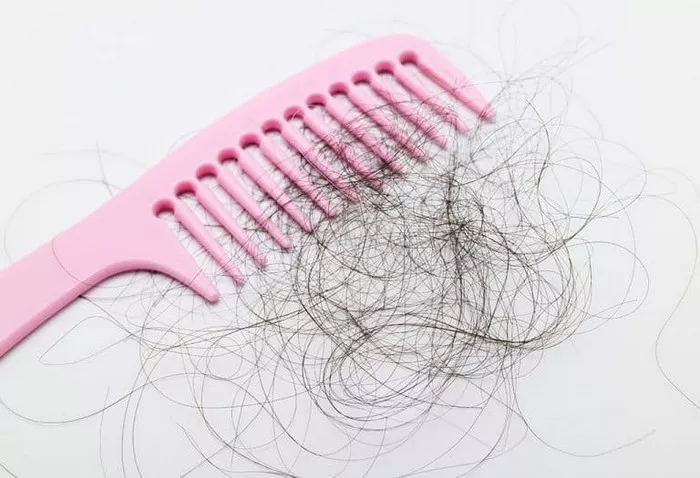Hair loss after anesthesia is a concern for many individuals undergoing surgery. This phenomenon, known as telogen effluvium, can be distressing but is usually temporary. Understanding the causes, risk factors, and preventive measures can help mitigate this issue. This comprehensive guide will explore the reasons behind post-anesthetic hair loss and provide actionable steps to prevent it.
Understanding Post-Anesthesia Hair Loss
Anesthesia is a medical intervention that allows for pain-free surgical procedures. However, the body’s response to surgery and anesthesia can sometimes trigger a temporary form of hair loss called telogen effluvium. To comprehend how to prevent hair loss after anesthesia, it’s essential first to understand why it occurs.
Causes of Post-Anesthesia Hair Loss
1. Stress on the Body
Surgery and anesthesia put significant stress on the body. This stress can push hair follicles into the telogen (resting) phase prematurely, leading to shedding.
2. Inflammatory Response
The body’s inflammatory response to surgery can affect hair follicles, disrupting their normal growth cycle and causing hair loss.
3. Nutritional Deficiencies
Post-surgery recovery often involves changes in diet and nutrition, which can impact hair health. Nutritional deficiencies, particularly in vitamins and minerals essential for hair growth, can contribute to hair loss.
4. Medication Side Effects
Certain medications used during and after surgery can have side effects that include hair loss.
Risk Factors for Hair Loss After Anesthesia
1. Type of Surgery
Major surgeries that involve extensive anesthesia are more likely to cause telogen effluvium due to higher levels of bodily stress.
2. Pre-existing Hair Conditions
Individuals with existing hair conditions such as androgenetic alopecia are more susceptible to further hair loss after anesthesia.
3. Overall Health
Patients with underlying health issues or those undergoing multiple surgeries are at a higher risk of experiencing hair loss.
Preventive Measures for Hair Loss After Anesthesia
Preventing hair loss after anesthesia involves a multi-faceted approach that includes pre-surgery preparation, post-surgery care, and lifestyle adjustments.
Pre-Surgery Preparation
1. Consult with Your Doctor
Discuss any concerns about hair loss with your doctor. They can provide insights specific to your health and surgical procedure.
2. Healthy Diet
Maintain a well-balanced diet rich in vitamins and minerals, particularly those that support hair health, such as biotin, zinc, and iron.
3. Hydration
Ensure you are well-hydrated before surgery, as dehydration can impact hair health.
See Also: How to Stop Hair Loss from Keratin Treatment?
4. Supplements
Consider taking hair health supplements as recommended by your healthcare provider to bolster your hair’s resilience.
Post-Surgery Care
1. Follow Post-Operative Instructions
Adhere strictly to your doctor’s post-operative care instructions to minimize stress and promote overall recovery.
2. Manage Stress Levels
Stress management techniques such as meditation, deep breathing exercises, and gentle physical activities can help reduce the impact of stress on hair follicles.
3. Nutritional Support
Continue to eat a balanced diet and take any recommended supplements to support hair regrowth.
4. Gentle Hair Care Routine
Use gentle, sulfate-free shampoos and conditioners to avoid further stress on your hair. Avoid tight hairstyles that can pull on hair follicles.
5. Avoid Heat and Chemical Treatments
Refrain from using heat styling tools and chemical treatments until your hair has fully recovered.
Long-Term Hair Health Strategies
1. Regular Scalp Massages
Scalp massages can stimulate blood flow to hair follicles, promoting healthy hair growth.
2. Avoid Harsh Hairstyles
Opt for loose hairstyles that do not tug at the scalp, reducing the risk of traction alopecia.
3. Limit Exposure to Environmental Stressors
Protect your hair from excessive sun exposure, pollution, and harsh weather conditions.
4. Regular Check-Ups
Keep up with regular medical check-ups to monitor your overall health and address any underlying issues that could affect hair health.
Conclusion
Hair loss after anesthesia, while distressing, is usually temporary and manageable with the right approach. Understanding the causes and implementing preventive measures before, during, and after surgery can significantly reduce the risk of telogen effluvium. By maintaining a healthy diet, managing stress, and adopting gentle hair care practices, individuals can support their hair’s resilience and promote regrowth.
In cases where hair loss persists, seeking professional advice from a dermatologist or trichologist is advisable. These experts can provide personalized treatment plans to address and mitigate hair loss effectively.
Taking proactive steps to care for your hair and overall health will not only help in preventing hair loss after anesthesia but also contribute to your well-being and confidence in the long run.


